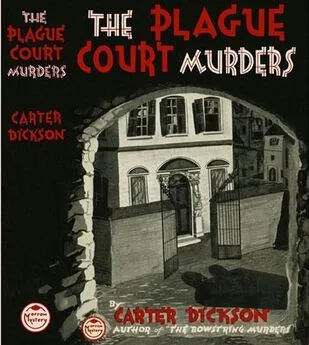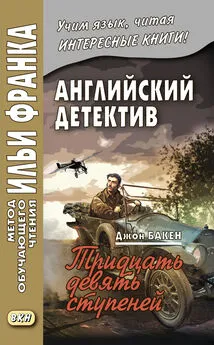John Blaine - The Boy Scouts In Russia
- Название:The Boy Scouts In Russia
- Автор:
- Жанр:
- Издательство:неизвестно
- Год:неизвестен
- ISBN:нет данных
- Рейтинг:
- Избранное:Добавить в избранное
-
Отзывы:
-
Ваша оценка:
John Blaine - The Boy Scouts In Russia краткое содержание
The Boy Scouts In Russia - читать онлайн бесплатно полную версию (весь текст целиком)
Интервал:
Закладка:
Then came the last pause. And when the sentry had passed the rope, Boris slipped over the parapet and started his descent. He had to come quickly for he had less than two minutes to reach the ground and join Fred in his shelter. Down he came, hand over hand, so fast at the end, when he just slid, letting the rope slip through his fingers, that he must have burned the skin from his palms. But he made it, and came running toward Fred. He was crouched low against the ground. But, just before he reached the bushes there was a shout from above, a flash, a loud report. A bullet sang over Fred's head, and the next moment the garden was alive with rushing, shouting men, ablaze with flashing points of electric light. They tried to hide in the shrubbery. But in vain. At this last moment, when Fred's plan had seemed sure of success, disaster had come-for some German officer, going on the roof, had been just in time to see the rope and spoil everything with his chance shot! CHAPTER X
SENTENCED
Both Fred and Boris recognized at once the hopelessness of flight. Both thought instinctively of the hollow and the concealed entrance to the tunnel, and both knew that to attempt to use that now would not save them, and would give away a secret that might be supremely important at some future time, either to them or to someone else among those who shared the precious secret. The grounds were flashing with light in all directions; soldiers called to one another; men ran all around, looking for them.
And yet, hopelessly caught as they were, neither could give up supinely. Both had the dauntless fighting spirit that must be conquered, that will never give up, not only while hope remains, but while disaster, be it ever so certain, has not actually come to pass. They were in a sort of thicket, almost as thick as a primeval jungle. At the same moment the thought seemed to come to each of them that the one chance for momentary safety lay in keeping perfectly still. They were side by side, wedged in a little opening they had made for themselves, and now they went down together.
All about them the din of the pursuit continued. Officers were pouring out of the house to join the hunt. Shouts and cries resounded. Fred had to smile to himself. It seemed to him that the boasted system and order of the German army could not be what he had always heard about it if the escape of two boys could produce such a disorganization.
And then there was a sudden diversion. The noise seemed to die away. It did not cease for there was still a good deal of talking, but there was no more shouting, until there was a sudden whirring sound.
"An aeroplane!" whispered Boris. "I've seen them for the last few days, flying in all directions. They use them for scouting."
"I knew I ought to recognize that sound!" said Fred.
It seemed fairly safe for them to speak to one another now. For some reason it was quite evident they had been forgotten.
There was an interval of almost complete silence; then came a sudden explosion of orders. Half a dozen motorcycles sprang into crackling life; there was the unmistakable din of a powerful aeroplane engine, which, with no muffler, is noisy enough to wake the dead. Then came the whirring of its propeller. They were sure that if they only dared to raise their heads, they would see the machine rising near by.
But there was more to follow that was just as inexplicable. The motorcycles chugged away; then three automobiles started. Their engines roared for a moment before they subsided to the ordered, steady hum of a smooth running motor. On the first car that got away there was a horn that made Boris start convulsively as he heard its bugle note, and grasp Fred's shoulder.
"That horn belongs only to a car used by a full general!" he said. "It must be von Hindenburg going, Fred! That flying machine brought important news!"
That had been evident to Fred almost from the first. He wondered mightily what was going to happen next. It seemed incredible that the Germans, knowing that he and Boris must soon be found, and that only patience was necessary if they were to be caught, would so quickly give up looking for them. And yet-Boris was right, of course. A general would not depart with such abundant evidence of haste and sudden decision unless some grave news had come through the air.
One question was soon settled. Scarcely had General von Hindenburg's car started, with the musical call of its horn clearing the way for it, when the search for the two scouts was renewed with as much vigor as had been shown before the coming of the aeroplane. And this time it was speedily successful. There was less din and confusion. Fred saw at once that some officer with a cool and level head had taken charge. The searchers now did the simple, obvious thing. They divided the grounds up into sections, and beat over each section thoroughly, with the result that a corporal and a private speedily came upon Boris and Fred, and, raising a sort of view halloo, dragged them out into the open, flashing their electric torches in their eyes.
"Here they are!" cried the corporal. "Herr Hauptmann, here they are!"
A captain came up quickly, and at the sight of Fred exclaimed sharply in his surprise.
"You're the boy I chose to help with the work in the house here!" he said. His face darkened. "He is a spy! Take him into the guard room and lock him up." He barely glanced at Boris. "Yes, that is the other. See that he is taken back to his quarters, corporal, and that a sentry remains constantly on guard."
"He is not a spy! If he is one, then so am I!" Boris broke out in a sharp protest. "He must be treated exactly like myself, or I must be used as he is!" throwing caution to the four winds.
"I am giving the orders here," said the German, coldly. "We have no desire to treat you harshly, Prince. You and your father have won the liking and respect of all your neighbors here, and it is a matter of regret that we must detain you at all. But you must be able to see for yourself that there is a great difference between an open enemy like yourself and one who pushes his way among us to get what information he can-"
"I beg your pardon, captain," Fred interrupted, thoroughly awake by this time to the danger in which he stood. "It was by your orders, and against my own protest, that I came into the house here at all."
"You will have an opportunity to explain all such matters at your trial," said the captain. "I can assure you that all will be done in a regular fashion, and that you will have every opportunity to defend yourself. Colonel Goldapp will doubtless arrange for a quick hearing since we shall not be here much longer."
Fred was quite cool and collected. He was frightened, to be sure, and he was brave enough to admit that to himself. He had good reason to be frightened. There is no offence more serious than espionage in time of war, and by every rule of war he was a spy. He had pretended to be a German, which he was not, and had been found within the German lines. It was true, of course, that he had been ordered into headquarters, but that was a trifling point, and, though he had raised it, Fred knew very well that no technicality would save him if the truth about him came out.
Boris understood all this, undoubtedly, quite as well as Fred or the German captain, but he was beside himself. He felt that Fred had run into this terrible danger because of him, in order to try to rescue him from an imprisonment that, though annoying, was by no means a serious matter.
"Take me instead of him!" he cried, forgetting that with every word he was really making Fred's case worse. "I-"
"I'll be all right," said Fred, with a cheerfulness he certainly did not feel. "All I want is a fair trial. If I get that, I'll be all right."
Unwillingly enough, Boris let himself be led away. Something in Fred's look, or in his voice, had warned him not to say anything more. So Fred saw him go, and was taken himself to the guard room, of which he was the only occupant save for the impassive Pomeranian sentry. Fred guessed, somehow, that German soldiers in war time did not often do things that caused them to be put under arrest. In the little he had seen of them he had come to understand what it was that made a German army so formidable.
He expected to be brought before the court early in the morning but, in fact, he was called out in less than an hour, and taken into the dining-room of the parsonage. Here, at the head of the table, sat an officer in a colonel's uniform; Colonel Goldapp, unquestionably, presiding over the court, which included four officers beside himself. Fred knew enough of the military law to understand what was going on. He saw a young lieutenant sitting with some papers before him. Another came and drew him aside.
"I am to defend you," this officer said, pleasantly. "That is, of course, I am to see that you get fair treatment. You are accused of being a spy. The charge, as I understand it, is that you are a Russian, but have disguised yourself as a German. If this is true, the best advice I can give you is to plead guilty and throw yourself on the mercy of the court. Your age will be taken into consideration."
"I am not a Russian," said Fred, quickly. "I am an American. I demand an opportunity to see the American ambassador, or at least the nearest American consul."
"Is that all?"
"That is all I can say. It is true that I am an American, and I believe it is my right, as a foreigner, to ask to see the representative of my country, since America and Germany are not at war, but are friendly one to the other."
"That would be true if you were charged with an offence in a civil court. But in a court-martial there are no such rules. Once more, I believe your best course is to plead guilty. I do not know the evidence against you, but I can tell you that the court might be merciful if you admitted your guilt frankly, while it would probably treat you more harshly if you forced it to prove your guilt."
Fred shook his head, however. And so the trial began. It was a real trial, and fair enough, but a trial by court-martial is not like one in a civil court, especially in time of war. There were no delays. The judge-advocate stated the case against Fred very briefly. He called as witness the officer who had brought Fred into headquarters, who said that the prisoner had been entirely willing to come. Then the corporal who had found him testified. And the third witness, when he was called, was none other than Lieutenant Ernst, who had befriended Fred at Virballen! At the sight of him Fred's heart sank. He began to understand what a strong case there really was against him.
At Ernst's first words there was almost a sensation, for the lieutenant brought out the fact that Fred was related to the Suvaroff family. The fact that Fred had gone straight to the house of his kinsman came out as a result of Ernst's evidence, and Fred knew that it would be useless to say that this had been the result of pure chance, and that he had not even known of Boris's existence. It was true, but it was none the less incredible. It was easy to see when Ernst had finished giving his testimony, which he did reluctantly, and with a good deal of sympathy for Fred, that the court had made up its mind.
There were no witnesses for Fred to call. He told his own story, but it was not believed. The finding of the court was inevitable: "Guilty as charged!" And Colonel Goldapp, in an expressionless voice, pronounced sentence.
"The prisoner is old enough, though he is only a boy, to know the fate of a spy. He risked this fate. He will be shot at once. Captain von Glahn will take charge of the execution of the court's sentence."
Fred passed through the minutes that followed as if he were in a dream. It seemed to him that it was someone else who was led into the garden, placed against a wall, and blindfolded. Von Glahn, a young officer, came and stood beside him.
Читать дальшеИнтервал:
Закладка:










